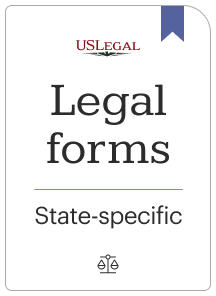

Form with which the directors of a corporation may authorize that a fee be paid to Board Members in a specific amount for services rendered. A sample hire-purchase agreement for a car is a legally binding document that outlines the terms and conditions of a hire-purchase arrangement between a car dealer (the lender or owner) and a customer (the hired). It specifies the rights and responsibilities of both parties involved in the transaction. This type of agreement allows the hired to use the car immediately while making regular installment payments, with the option to eventually own the vehicle upon completion of the agreement. Here are some relevant keywords to consider when discussing a sample hire-purchase agreement for a car: 1. Hire-purchase agreement: A legal contract that allows the hired to use the car for an agreed period while paying fixed installments, with the option to own the vehicle at the end of the agreement. 2. Lender/Owner: The car dealer or financing company that owns the car until the hired completes all the payments stated in the agreement. 3. Hired/Buyer: The customer who enters into the hire-purchase agreement to use the car, agreeing to make regular payments over a specified period. 4. Installment payments: The fixed amounts paid by the hired on a monthly or weekly basis to the lender, covering both the cost of the car and any applicable interest charges. 5. Down payment: An initial lump sum paid by the hire rat the beginning of the agreement, reducing the total loan amount. 6. Ownership transfer: The point at which the hired gains full ownership of the car upon completing all the required payments. 7. Interest rate: The percentage charged on the outstanding balance of the hire-purchase agreement, usually calculated annually. There are different types of hire-purchase agreements available for cars, tailored to suit varying needs: 1. Standard hire-purchase agreement: This is the most common type, where the hired pays regular installments over a fixed period until completing the agreed amount, including interest. 2. Balloon hire-purchase agreement: In this case, lower monthly payments are made during the term of the agreement, with a larger final payment known as the "balloon payment" due at the end. The hired can choose to make the balloon payment or opt for refinancing or selling the car to cover the outstanding amount. 3. Lease purchase agreement: Similar to hire-purchase, the hired makes' installment payments, but with the option to buy the car at the end of the agreement or return it to the lender. 4. Personal contract hire agreement: This type of agreement is more like a long-term rental, with no option to own the car at the end. The hired makes regular payments and returns the car at the end of the agreed period. In summary, a sample hire-purchase agreement for a car is a legal document outlining the terms and conditions of a car financing arrangement. Different variations of hire-purchase agreements cater to different preferences and circumstances, providing flexibility in terms of payments, ownership transfer, and future options.
A sample buyout agreement for partnership is a legally binding document that outlines the terms and conditions for one partner to buy out the ownership interest of another partner in a business partnership. This agreement is essential in facilitating a smooth transition of ownership and minimizing disputes or conflicts during the buyout process. The key purpose of a buyout agreement is to protect the rights and interests of both parties involved. There are several types of sample buyout agreements for partnership, including: 1. Purchase-Sale Agreement: This type of agreement sets forth the terms of how the buying partner will acquire the interest of the selling partner. It includes details such as the purchase price, payment terms, method of valuation, and any additional terms for the transaction. 2. Cross-Purchase Agreement: In this agreement, the remaining partners collectively agree to purchase the departing partner's interest. Each partner will buy a portion of the selling partner's shares, proportionate to their existing ownership interest. 3. Entity or Stock Redemption Agreement: In this scenario, the partnership entity itself buys out the ownership interest of the departing partner. The remaining partners will collectively fund the buyout, and the redeemed shares are typically retired or redistributed among the remaining partners. 4. Wait-and-See Agreement: This type of agreement allows the partnership to postpone determining the buyout terms until a specific event occurs, such as retirement, disability, or death of a partner. It provides flexibility by deferring the valuation and terms until the triggering event takes place. Regardless of the type of buyout agreement chosen, it is crucial to include specific provisions such as the method of valuation, dispute resolution procedures, payment terms (e.g., lump-sum or installment), non-compete clauses, confidentiality agreements, and conditions for terminating the agreement. Striking a fair balance between the interests of the buying and selling partners is vital to ensure a successful buyout process. Consulting a legal professional can help draft a comprehensive sample buyout agreement tailored to the specific needs and circumstances of the partnership.
US Legal Forms boasts a spotless reputation and over 25 years of expertise. Join us today and turn form execution into something simple and streamlined!